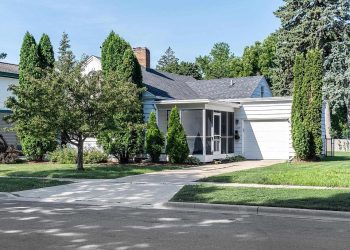When considering buying a home, various factors come into play, such as location, amenities, and neighborhood characteristics. One crucial aspect that can significantly impact home prices is the presence of restrictive covenants.
Restrictive covenants are contractual agreements that impose specific limitations on property use and development within a particular community or neighborhood. In this blog post, we will explore how these covenants influence home prices and why they are essential for maintaining property values.
Consistency in Aesthetic Appeal
One of the key ways that restrictive covenants affect home prices is by assuring consistency in a neighborhood’s visual attractiveness with strict guidelines for design aspects. Enforcing these limits creates a unified and visually appealing environment, which can increase property prices. Potential purchasers are typically willing to pay a premium for such visual attractiveness when they are drawn to an area with similar architectural styles and well-maintained buildings.
Furthermore, the aesthetic consistency obtained through limited covenants encourages a sense of harmony and unity in the neighborhood. These covenants provide a cohesive aesthetic identity that enhances the overall beauty of the community by defining guidelines for architectural styles and design components.
Aesthetic consistency not only pleases the eye but also fosters a sense of belonging and pride among people. Potential purchasers are frequently drawn to neighborhoods with well-thought-out and visually pleasant environments, resulting in increased demand and, eventually, higher housing prices for properties in these aesthetically consistent locations.
Preservation of Residential Character
Restrictive covenants are essential for preserving a neighborhood’s residential identity. They may contain provisions that make commercial activity, industrial structures, or multifamily homes illegal. This emphasis on keeping the surroundings completely domestic might contribute to a sense of exclusivity and desirability. Homebuyers looking for a calm and pleasant living environment are generally ready to pay more for properties in neighborhoods with limited covenants.
Moreover, by preserving residential character through restricted covenants, the area retains its original vibe and exclusivity. These covenants help to promote a calm and serene living environment free of the noise and disruption associated with non-residential usage by forbidding commercial activities and industrial structures.
The emphasis on a purely residential community appeals to purchasers who value calm and a feeling of community, resulting in increased demand and higher property values for properties located in such covenant-protected neighborhoods.
Protection of Open Spaces and Natural Features
Restrictive covenants are frequently used to safeguard open spaces, natural features, and environmentally sensitive places. These covenants may prevent large lots from being subdivided, ensuring that properties retain their spaciousness and scenic surroundings. Property values benefit from the preservation of these because buyers enjoy the existence of parks, green spaces, and conserved natural habitats within or near their communities.
Access to natural surroundings and green areas has been linked to enhanced mental health, physical activity, and community cohesiveness. As a result, restricted covenants foster an atmosphere that promotes a higher quality of life, making prospective purchasers willing to pay more for a balanced and sustainable lifestyle.
Prevention of Overcrowding and Maintenance of Privacy
Restrictive covenants can help to keep an area from becoming overcrowded by limiting property density and lot sizes. These covenants assist homeowners in maintaining a sense of spaciousness and solitude by limiting the quantity and size of structures. As buyers desire residences with plenty of breathing room and a sense of exclusivity, this restricted development frequently results in higher property values.
Furthermore, restrictive covenants that limit overpopulation and provide privacy contribute to a more calm and comfortable living environment. These covenants provide homeowners with more personal space and tranquility by guaranteeing that properties are not densely packed and by controlling lot sizes. This emphasis on privacy and a less congested community appeals to buyers looking for a calm respite from the hustle and bustle of city life, ultimately increasing the popularity and value of houses in such areas.
Ensuring Visual Appeal and Property Maintenance
Property maintenance is another key element influenced by restricted covenants. These covenants frequently include rules about care, landscaping, and overall aesthetics. The visual beauty of the community is kept by requiring homeowners to maintain their properties to a specified degree. Well-kept neighborhoods tend to attract purchasers who want to invest in properties with an aesthetically pleasing environment, resulting in higher housing prices.
The enforcement of property maintenance rules through restrictive covenants also guarantees that the neighborhood’s general visual appeal is maintained. These covenants foster a sense of pride and care in the community by requiring frequent upkeep, landscaping, and adherence to particular aesthetic standards.
Prospective buyers are frequently drawn to communities with well-maintained residences because it conveys a feeling of community pride and contributes to a great first impression. As a result of the perceived value of a physically pleasing and cohesive community environment, properties in regions with rigorous property maintenance covenants tend to command higher prices.
Conclusion
In conclusion, restrictive covenants influence home prices by ensuring visual consistency, preserving residential character, safeguarding open areas, preventing overcrowding, and ensuring property maintenance. These covenants create a sense of security, predictability, and a desirable living environment for potential buyers.
While they may put some constraints on property owners, the benefits, such as improved property values, frequently outweigh the constraints. Consider the influence of restrictive covenants on property values as you navigate the real estate market, as well as how they correspond with your tastes and long-term goals.





